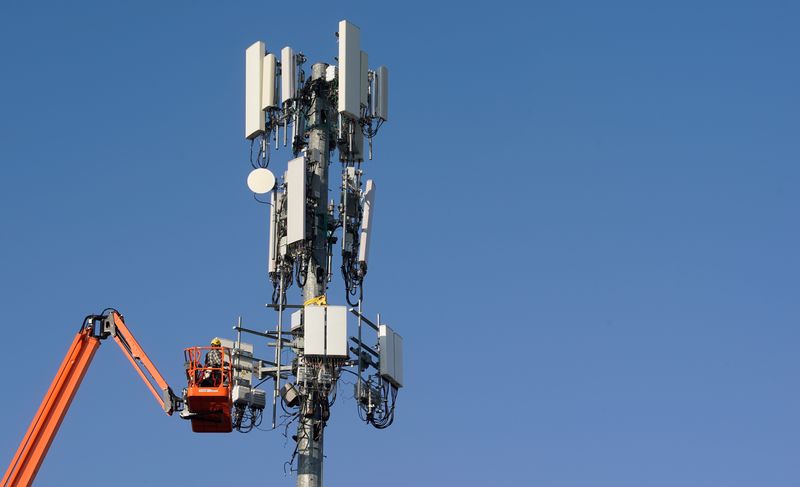(Reuters) -Verizon missed estimates for third-quarter revenue on Tuesday as fewer people upgraded their phones, eclipsing strong wireless subscriber additions and sending its shares down 3% in premarket trading.
The U.S. telecom giant reported a 10% drop in phone upgrade volumes as high interest rates forced customers to dial back spending, pulling down wireless equipment sales by about 9% in the quarter.
Its total revenue of $33.3 billion came in slightly below analysts’ expectations of $33.43 billion, according to data compiled by LSEG.
However, Verizon (NYSE:VZ) added 239,000 net monthly bill-paying wireless phone subscribers in the September quarter, compared with expectations of 218,100 additions, according to FactSet. It posted 148,000 additions for the June quarter.
Growing adoption of the company’s myPlan, a customizable offering with streaming perks including Disney+, Hulu and Max for an extra cost, has helped Verizon stay resilient in the competitive U.S. telecom market.
With the U.S. wireless market nearing saturation, Verizon and its rivals have been looking to expand their high-speed broadband internet business to tap increasing data use by customers. The company agreed to buy fiber-optic internet provider Frontier Communications (OTC:FTRCQ) last month in a $20 billion deal.
Verizon’s broadband net additions were 389,000 in the quarter, compared with 434,000 a year ago, bringing total broadband subscribers to more than 11.9 million.
The company is expected to reveal its broadband strategy, including new targets for the segment, later in the day during a call with analysts.
Its fixed wireless service, which sends signals to a device in a home or business over airwaves, added 363,000 customers to hit a total of nearly 4.2 million, meeting its goal of 4 to 5 million subscribers more than a year ahead of schedule.
Excluding items, Verizon reported profit of $1.19 per share, compared with estimates of $1.18.
Net income fell to $3.4 billion from $4.9 billion a year ago, hit by severance charges of $1.7 billion from a voluntary separation program and other headcount reduction initiatives.

